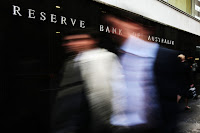Hub Economic Forum - 15 September 13.00 - 16.00
Tuesday September 15th, The Hub Amsterdam & Imagine Economics will launch the Hub Economic Forum.
Has the financial crisis made you think about the systemic flaws in our current economic thinking? Or did you recognize the limits to growth long before? Do you want to ground social and sustainable values deeper in our economic system? And do you consider yourself an economic change agent? Then the Hub Economic Forum is the place to share your theories, pose your questions, voice your ideas!
While in The Hague 'Prinsjesdag' is being celebrated and the Minister of Finance presents the budget for the next year, The Hub and Imagine Economics invite you to dig into the deeper economic questions: What is an economy for? What are the objectives we are trying to reach and on which principles should our system be built? And looking at our world today, which current economic mental models are ready for revision and what do the alternatives look like?
During our first Forum we do not only use our collective intelligence to imagine our perfect economic system, but we also start co-creating that future by using the Hub network as a Community of Practice for our ideas, and a playground for economic experiments. As a practice of 'participatory economics' we'd like to share both the joy and the expenses of the afternoon. Therefore lunch is served, and you are warmly invited to contribute to the collection.
There is a maximum of 30 participants, so if you want to join The Hub Economic Forum on Prinsjesdag, please RSVP to Sarah (sarahdenie@mac.com).
The Hub Amsterdam is located at Westerstraat 187, Amsterdam
For more info about the Hub, click
here.






























